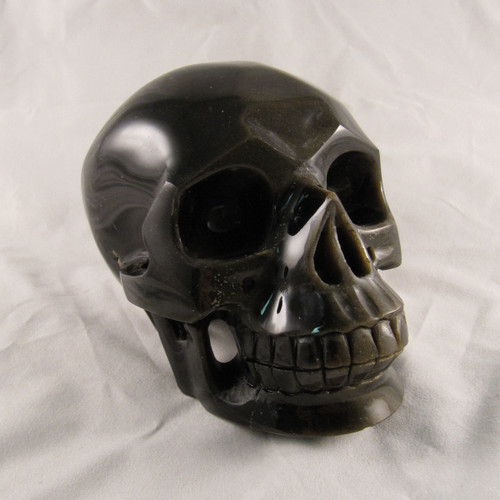Black Obsidian Scrying Mirror
Obsidian is a natural glass, produced when silica rich lava cools quickly, preventing the formation of a crystal structure. The name comes from the Latin obsidianus, a corruption of obsianus lapis, “stone of Obsius”. Authors in antiquity believed Obsius was the first person to discover the stone in Ethiopia.
Materials with reflective surfaces were once luxury goods. Before the technology of metal backed glass became widely available, mirrors were produced from polished metal or stone instead. Although found in many cultures, obsidian mirrors were most famously used by Mesoamerican cultures like the Maya and Aztecs. They were both status symbols and ritual tools, used for predicting the future.
During the European colonization of the Americas, obsidian mirrors were brought back as exotic souvenirs for the royal courts and reentered European spiritual traditions. For example, the early 17th century scholar and magician John Dee, advisor to Queen Elizabeth I, used an Aztec scrying mirror to communicate with angels.
Traditionally obsidian mirrors are used for scrying, a form of divination that uses shiny or transparent objects. They also make great charging plates for gem elixirs, a stone base for crystal grids, or a cleansing tool during energy work, placing the mirror over congested parts of the subtle body. Obsidian is associated metaphysically with purifying negativity, spiritual protection, and accessing other realms, like connecting to our angelic guides.
This is a stock photo. You will receive ONE obsidian mirror. It measures ~2" across and ~1/2 to 7/16" thick and weighs approximately ~0.11-0.13 lbs. The mirrors are circular, with a flat rim, and slightly beveled edges. Although most of the mirrors are solid black, some have translucent brown areas. There may be natural imperfections like minor scratches, divots, or dots caused by mineral inclusions in the stone.
*Stand not included.










